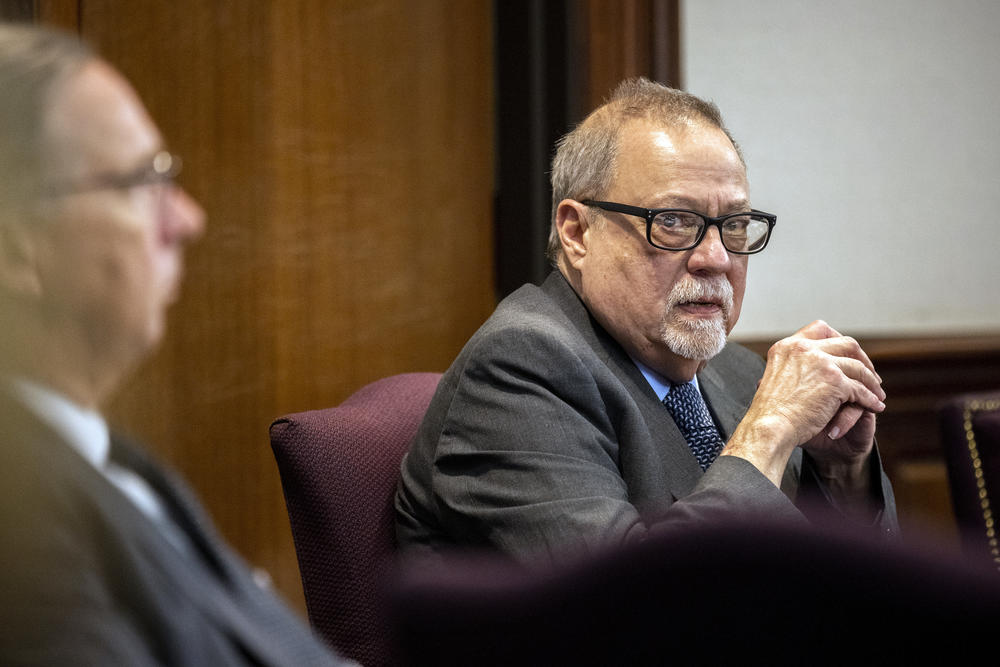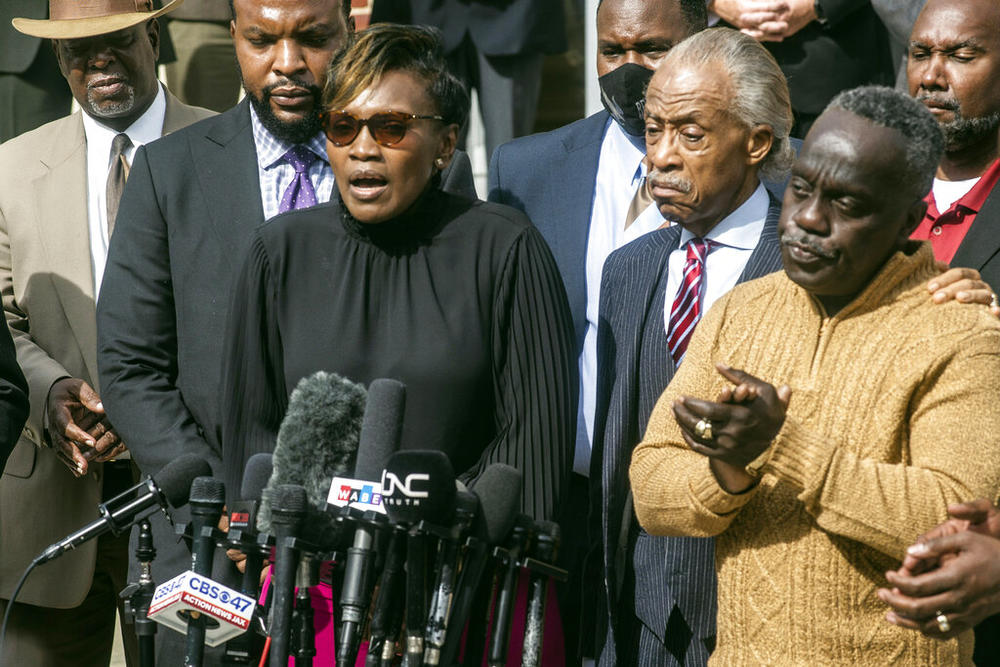
Caption
Greg McMichael looks at the gallery during the testimony of his son, Travis McMichael's in the trial of he, his son and William "Roddie" Bryan in the Glynn County Courthouse, Tuesday, Nov. 16, 2021, in Brunswick, Ga.
Credit: Pool photo





